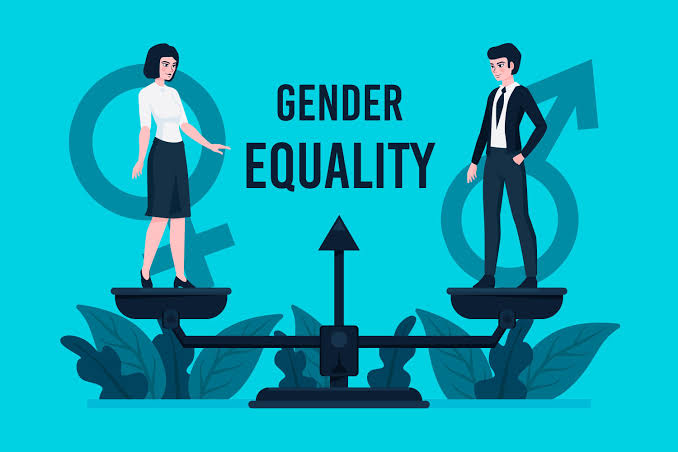Education plays pivotal role in promoting gender equality in Nigeria a country where gender disparities persist despite progress in various sectors. This article delves into the multifaceted role of education in advancing gender equality. It examines key issues and challenges. Strategies for leveraging education as a catalyst for positive change are also discussed.
Gender equality remains a pressing issue globally. This includes Nigeria, where cultural norms socio-economic factors and institutional barriers contribute to disparities between men and women. Education is recognized as a fundamental tool. It challenges these inequalities and empowers women and girls to achieve their full potential.
Access to quality education is critical for empowering girls and women in Nigeria. Historically, girls have faced barriers such as early marriage and lack of financial resources. Cultural norms that prioritize boys' education also contribute. By ensuring equal access to education for both genders Nigeria can empower girls. They can pursue higher education, gain skills and contribute meaningfully to society.
Building Knowledge and Skills
Education equips individuals with knowledge, skills, and information necessary for economic participation and decision-making. By providing girls and women with education, particularly in fields traditionally dominated by men like science, technology, engineering, and mathematics (STEM), Nigeria can expand opportunities for women in the workforce and leadership roles.
Breaking Societal Norms and Stereotypes
Challenging Gender Stereotypes
Education plays a crucial role in challenging harmful gender stereotypes that perpetuate inequality. In Nigeria, societal norms often dictate traditional roles for women as caregivers and homemakers, limiting their access to education and economic opportunities. Through education, young people can learn about gender equality, respect for diversity, and the importance of equal rights and opportunities for all.
Empowering Girls to Speak Out
Education empowers girls to speak out against gender-based violence, discrimination, and harmful practices such as female genital mutilation and child marriage. Schools and educational institutions can serve as safe spaces where girls learn about their rights, gain confidence, and advocate for gender equality within their communities.
Economic Empowerment and Poverty Alleviation
Enhancing Economic Opportunities
Education is a pathway to economic empowerment for women in Nigeria. By acquiring education and skills training, women can access higher-paying jobs, start businesses, and contribute to household incomes. Studies show that investing in girls' education yields high economic returns, benefiting families, communities, and the national economy.
Reducing Poverty Rates
Educated women are more likely to escape poverty and break the cycle of intergenerational poverty. In Nigeria, where a significant portion of the population lives below the poverty line, educating women can lead to improved health outcomes, reduced fertility rates, and better nutrition for children, contributing to overall socio-economic development.
Challenges to Gender Equality in Education
Cultural and Societal Norms
Deeply entrenched cultural and societal norms in Nigeria often prioritize boys' education over girls', perpetuating gender disparities. Practices such as early marriage, gender-based violence, and household responsibilities limit girls' access to education and hinder their academic achievement.
Infrastructure and Resource Gaps
Challenges such as inadequate school facilities, lack of trained teachers, and limited access to educational materials disproportionately affect girls' education in rural and marginalized communities. Addressing these infrastructure gaps is essential to ensuring equal educational opportunities for all children, regardless of their gender or location.
Strategies for Promoting Gender Equality in Education
Policy Reforms and Implementation
Nigeria has made strides in promoting gender equality through policies and legislation, such as the National Gender Policy and the Universal Basic Education Act. However, effective implementation and enforcement at the grassroots level are crucial to translating policy commitments into tangible improvements in girls' education.
Investment in Girls' Education
Increased investment in girls' education is essential for expanding access, improving educational quality, and closing gender gaps in enrollment and retention rates. This includes scholarships, school feeding programs, and initiatives to keep girls in school, such as menstrual hygiene management facilities.
Community Engagement and Awareness
Engaging communities, religious leaders, and traditional authorities in dialogue about the benefits of girls' education can help shift attitudes and norms that perpetuate gender inequality. Awareness campaigns, parent-teacher associations, and mentoring programs can support girls' educational aspirations and encourage community support for gender equality in education.
Conclusion
Education is a powerful tool for promoting gender equality in Nigeria, empowering women and girls to challenge stereotypes, pursue their ambitions, and contribute to national development. By addressing barriers to girls' education, investing in quality education, and fostering an inclusive learning environment, Nigeria can harness the full potential of its human capital and achieve sustainable socio-economic progress. Embracing gender equality in education is not only a matter of social justice but also a strategic imperative for building a more inclusive, prosperous, and equitable society where everyone can thrive.
